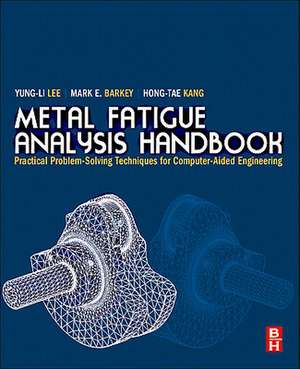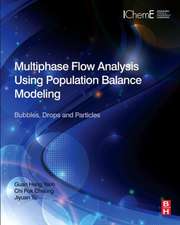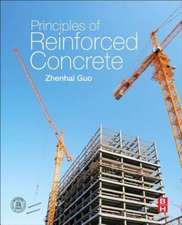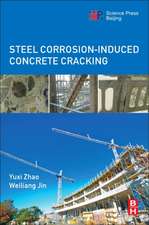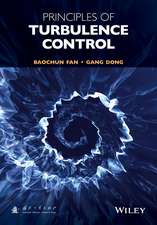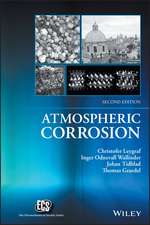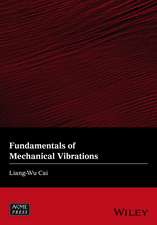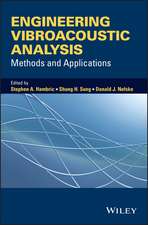Metal Fatigue Analysis Handbook: Practical Problem-solving Techniques for Computer-aided Engineering
Autor Yung-Li Lee, Mark E. Barkey, Hong-Tae Kangen Limba Engleză Hardback – 5 oct 2011
Written to bridge the technology gap between academia and industry, the Metal Fatigue Analysis Handbook presents state-of-the-art fatigue theories and technologies alongside more commonly used practices, with working examples included to provide an informative, practical, complete toolkit of fatigue analysis.
Prepared by an expert team with extensive industrial, research and professorial experience, the book will help you to understand:
- Critical factors that cause and affect fatigue in the materials and structures relating to your work
- Load and stress analysis in addition to fatigue damage—the latter being the sole focus of many books on the topic
- How to design with fatigue in mind to meet durability requirements
- How to model, simulate and test with different materials in different fatigue scenarios
- The importance and limitations of different models for cost effective and efficient testing
- The only book on the market to address state-of-the-art technologies in load, stress and fatigue damage analyses and their application to engineering design for durability
- Intended to bridge the technology gap between academia and industry - written by an expert team with extensive industrial, research and professorial experience in fatigue analysis and testing
- An advanced mechanical engineering design handbook focused on the needs of professional engineers within automotive, aerospace and related industrial disciplines
Preț: 580.44 lei
Preț vechi: 797.84 lei
-27% Nou
Puncte Express: 871
Preț estimativ în valută:
111.06€ • 115.97$ • 91.71£
111.06€ • 115.97$ • 91.71£
Carte tipărită la comandă
Livrare economică 08-22 aprilie
Preluare comenzi: 021 569.72.76
Specificații
ISBN-13: 9780123852045
ISBN-10: 0123852048
Pagini: 632
Ilustrații: black & white illustrations, black & white tables, figures
Dimensiuni: 191 x 235 x 43 mm
Greutate: 1.45 kg
Editura: ELSEVIER SCIENCE
ISBN-10: 0123852048
Pagini: 632
Ilustrații: black & white illustrations, black & white tables, figures
Dimensiuni: 191 x 235 x 43 mm
Greutate: 1.45 kg
Editura: ELSEVIER SCIENCE
Public țintă
Primary: Design engineers, technical specialists and structural analysts working in the automotive, aerospace and related mechanical industries.Secondary: Graduate students on advanced fatigue courses and fatigue researchers working in academia and industry.
Cuprins
- Road Load Analysis Techniques in Automotive Engineering – Xiaobo Yang & Peijun Xu
- Pseudo Stress Analysis Techniques – Yung-Li Lee & Mingchao Guo
- Rainflow Cycle Counting Techniques – Yung-Li Lee & Tana Tjhung
- Stress-Based Uniaxial Fatigue Analysis – Yung-Li Lee & Mark E. Barkey
- Stress-Based Multiaxial Fatigue Analysis – Yung-Li Lee & Mark E. Barkey
- Strain-Based Uniaxial Fatigue Analysis – Yung-Li Lee & Mark E. Barkey
- Fundamentals of Cyclic Plasticity Theories – Yung-Li Lee & Mark E. Barkey
- Strain-Based Multiaxial Fatigue Analysis –Mark E. Barkey & Yung-Li Lee
- Vibration Fatigue Testing and Analysis – Yung-Li Lee & Hong-Tae Kang
- Fatigue of Seam Welded Joints – Hong-Tae Kang & Yung-Li Lee
- Fatigue Life Prediction Methods of Resistance Spot Welded Joints – Hong-Tae Kang & Yung-Li Lee
- Design and Analysis of Metric Bolted Joints (VDI Guideline and Finite Element Analysis) – Yung-Li Lee & Hsin-Chung Ho
Recenzii
"The Metal Fatigue Analysis Handbook was written to bridge the technology gap between academia and industry. It presents state-of-the-art fatigue theories and technologies alongside more commonly used practices. Working examples are included to provide an informative, practical, complete tool kit of fatigue analysis. Prepared by an expert team with extensive industrial, research, and professorial experience, the book examines critical factors that cause and affect fatigue in the materials and structures, load and stress analysis, ways to design to meet durability requirements, and how to model, simulate, and test with different materials in different fatigue scenarios." --Mechanical Engineering Magazine, June 2012
